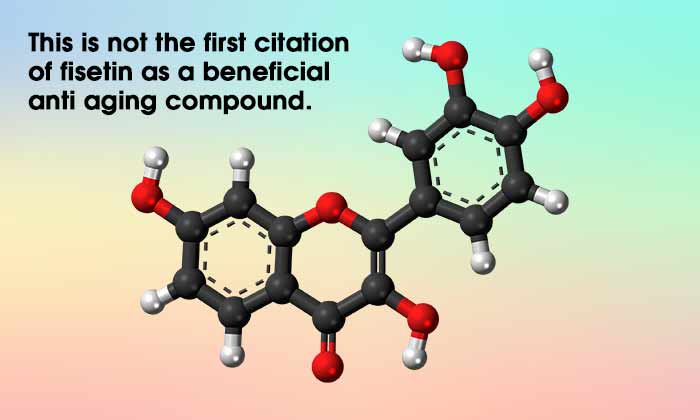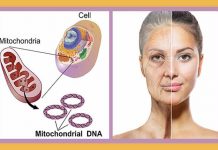
A Compound in Some Vegetables and Fruits Found to Reverse Aging

According to a latest research, fisetin, a flavonoid occurring naturally in vegetables and fruits, acts as a senolytic agent. It helps clear out the cells which have been damaged due to aging, improves health and prolongs the lifespan.
When the ability of the cells to divide and replicate is lost, the cells start dying and gradually they are cleared out by the immune system. But with aging, this function of the immune system is compromised, and it becomes less and less efficient in clearing out these damaged cells. These cells are called as senescent cells and researchers have claimed that build-up of these cells results in many chronic diseases related to aging.
A lot of work is being undertaken to develop senolytic drugs which help clear out these senescent cells with the objective of eliminating the symptoms that accompany various age-related diseases. Some time back, researchers came up with two drugs which reduce the senescent cells in mouse related experiments and prolong the animal’s life.
The same team of researchers has even published a paper, expanding the previous work and zeroing in on better and more potent senolytic agents. The research tested 10 different flavonoid [1] compounds and found that fisetin was the most effective in mouse as well as human tissue experiments, as far as senotherapeutic effects were concerned.
This is not the first citation of fisetin as a beneficial anti-aging compound [2]. A study was conducted in 2014 on mice and it suggested that fisetin prevented cognitive and learning difficulties and also prevented memory loss which are common characteristics of age related Alzheimer’s disease. At that time, it was only hypothetical how fisetin could prevent Alzheimer’s as it reportedly did not affect the build-up of amyloid plaques which is thought to be the main cause of the disease.

Only for past some time have the researchers started investigating associations between the build-up of senescent cells and neurodegenerative disease. Just some time back, a team of researchers from Mayo Clinic suggested that there is an association between senescent cells in the brain and symptoms of neurodegenerative disease. This study is therefore telling us that targeting cellular senescence in brain could be a useful measure to battle dementia.
An innovation in this research is making use of technology known as mass cytometry [3] which helps observe how a given compound works within an individual cell. This technology which has been used for the first time in research related to aging empowered the scientists to observe if a tested treatment was successfully targeting specific senescent cells.
A researcher working on the project said that apart from showing that the drug is effective, this is the first illustration of showing the effects of drugs on these damaged cells. The effect of fisetin was studied on both lifespan and health when it was administered to an elderly mouse in late stages. It was found that the treatment eliminated age related pathological biomarkers and extend the median lifespan of the mice.
The research is still in its nascent stages and it has been verified only in mice models. It is a big leap from animal test to human verifications. But considering the natural origin of fisetin and significant record of safety in humans, it is believed that the research can be extended to human clinical trials giving more clarity on whether the treatment will tender anti-aging effects in human elderly subjects.
The results tout that the period of health, termed lifespan can be extended even towards the end of life. But there still are many unanswered questions like right dosage as an example.
This study was published in the journal “EbioMedicine” [4].










